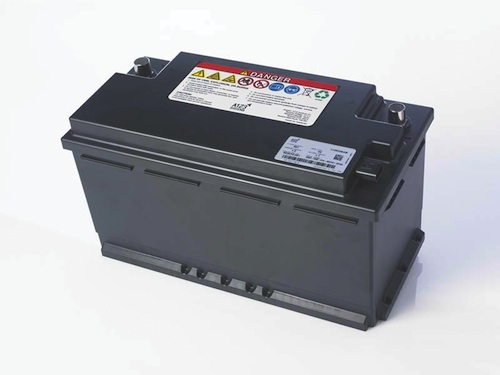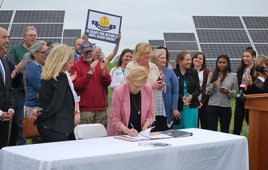The National Renewable Energy Laboratory (NREL) is looking to give batteries from electric drive vehicles (EV) a “second life.” Possible secondary uses for lithium ion (Li-ion) batteries include residential and commercial electric-power management, power-grid stabilization to help provide reliable electricity to users, and renewable energy system firming—which in this case involves using batteries to make power provided to the grid by variable resources such as wind and solar energy more usable.

In the next decade, used batteries from electric vehicles will get a second life in homes and possibly to stabilize the grid, if ideas of NREL engineers play out as planned.
The project will begin with a comprehensive technical and economic analysis addressing all aspects of a battery’s lifecycle in search of the best second-use strategies, followed by a comprehensive test program to verify findings, particularly battery lifetimes. For the field test, researchers will deploy aged EV batteries at the University of California, San Diego’s campus-wide electric power grid.
The cost of Li-ion batteries also currently affects the affordability of EVs for consumers. Researchers will do a technical and economic investigation to see if the potential for reusing Li-ion batteries could lead to consumers obtaining a cost credit for the remaining value of a used battery, potentially offsetting a portion of the initial cost to the EV buyer. It might be the case that while a battery no longer has sufficient power for an EV, it still has the capability to meet the needs of other less demanding applications.
Allocating used electric vehicle batteries to second-use applications also could benefit the environment by delaying the recycling or disposing of batteries, and by supplying a service that improves the efficiency and cleanliness of other industries.
The NREL award to the CCSE team leverages an ongoing UC Davis-CCSE-TSRC study funded by the California Energy Commission on the repurposing of used EV batteries for home energy storage. The total budget for the NREL-CCSE second use battery project is approximately $1.3 million with 51 percent of the funding coming from CCSE and its partners.
WPE
Filed Under: Uncategorized




